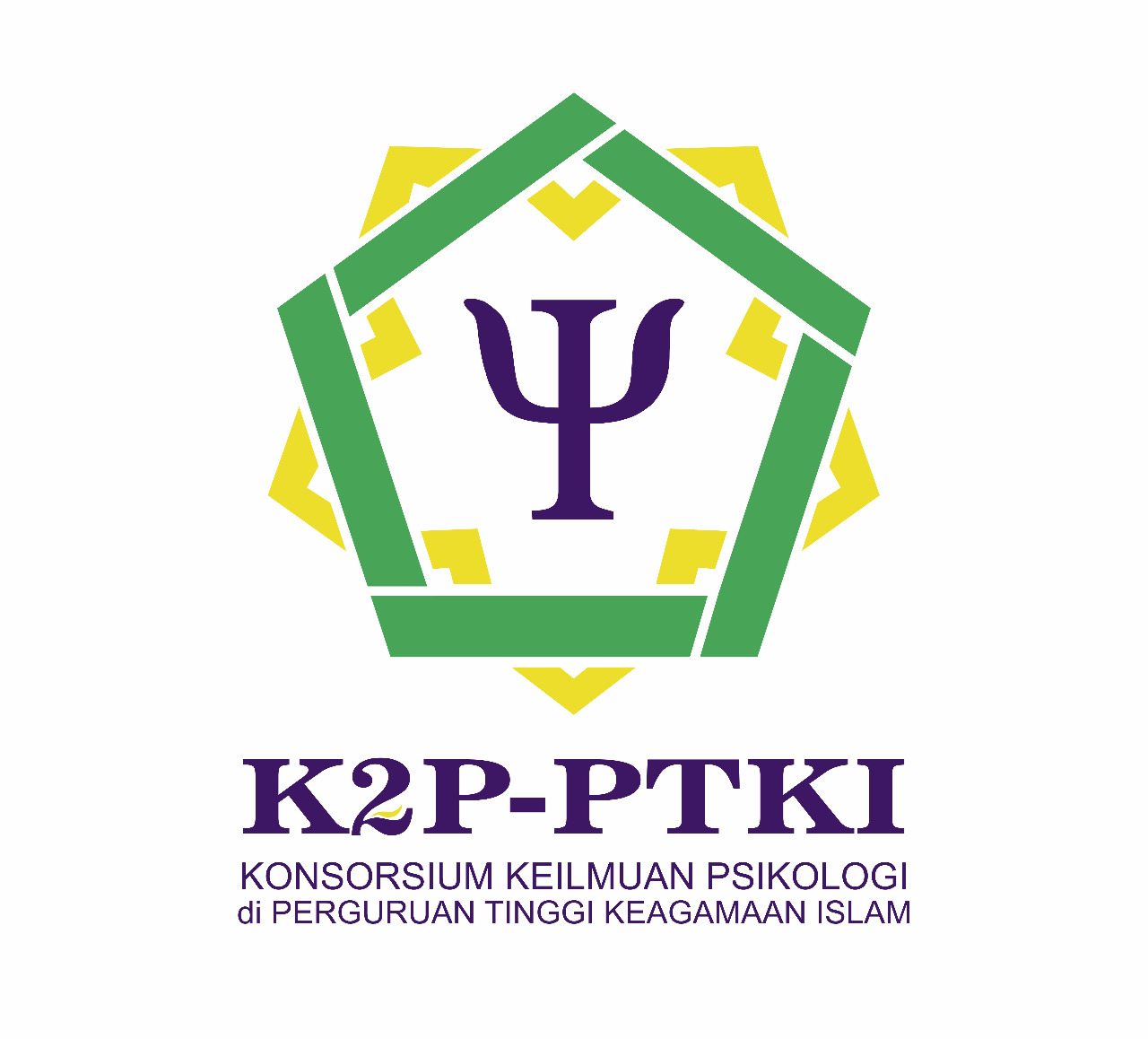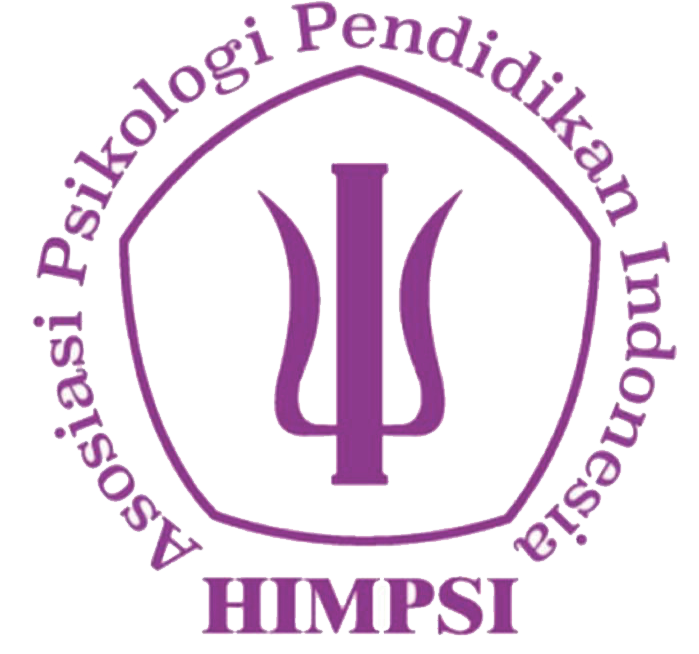Gambaran resiliensi pada pasien pasca stroke
Abstract
Abstract: Resilience is the human ability to face, overcome and be strong upward difficulties and problems they have. The state of stroke can affect various aspects of life a person of either social, physical or psychological aspect. Resilience in this case is important to minimize or reduce the psychological experienced in post-stroke patients. The purposes of this research are to analyze and perceive deeply about resilience in post-stroke patients. The research method used is a qualitative method with a phenomenological study approach. The method that used in retrieving data are based on interview and observation techniques which involved four respondents. The sampling technique used is purposive sampling. The data analysis used is qualitative analysis with deductive data analysis. The results of this research show that each post-stroke patient has a different way of achieving resilience. From the seven aspects of resilience, the subject can be reached 5 aspects, namely causal analysis, self-efficacy, optimism, empathy, and reaching out.
Keywords: pasca stroke; phenomenological; resilience
Abstrak: Resiliensi adalah kemampuan individu untuk menghadapi, mengatasi dan menjadi kuat atas kesulitan dan permasalahan yang dihadapinya. Keadaan stroke dapat memengaruhi berbagai aspek kehidupan seseorang baik aspek sosial, fisik maupun psikologis. Resiliensi dalam hal ini penting untuk dapat meminimalkan atau menurunkan kondisi psikologis pada pasien pasca stroke. Tujuan penelitian ini adalah untuk menganalisis dan memahami secara mendalam tentang gambaran resiliensi pada pasien pasca stroke. Metode penelitian yang digunakan adalah metode kualitatif dengan metode pendekatan studi fenomenologi. Teknik pengambilan data menggunakan wawancara dan observasi dengan melibatkan empat orang responden. Teknik pengambilan sampel yang digunakan adalah dengan purposive sampling. Analisa data yang digunakan adalah analisis kualitatif dengan analisis data secara deduktif. Hasil dari penelitian menunjukkan bahwa setiap pasien pasca stroke memiliki cara yang berbeda-beda dalam mencapai aspek resiliensi. Dari tujuh aspek resiliensi, subjek sudah dapat mencapai 5 aspek yaitu causal analysis, self efficacy, optimis, emphaty, dan reaching out.
Kata Kunci: fenomenologi; pasca stroke;resiliensi
Keywords
Full Text:
PDF (Bahasa Indonesia)References
Ardana, E., & Sholichatun, Y. (2014). Resiliensi Pada orang dengan HIV Aids (Odha). Jurnal Psikoislamika I, 11(1), 5–8. Retrieved from http://eprints.uny.ac.id/13691/
Chan, C. K. P., Lo, T. L. T., Wan, A. H. Y., Leung, P. P. Y., Pang, M. Y. C., & Ho, R. T. H. (2021). A randomised controlled trial of expressive arts-based intervention for young stroke survivors. BMC Complementary Medicine and Therapies, 21(1), 1–10. https://doi.org/10.1186/s12906-020-03161-6
Chen, C. P., & Tung, H. H. (2021). Resilience and daily activity among patients after stroke. Aging Medicine and Healthcare, 12(4), 152–158. https://doi.org/10.33879/AMH.124.2021.03011
Fajar, P., & Aviani, Y. I. (2022). Hubungan self-efficacy dengan penyesuaian Diri : Sebuah Studi Literatur. Jurnal Pendidikan Tambusai, 6(2015), 2186–2194.
Gyawali, P., Chow, W. Z., Hinwood, M., Kluge, M., English, C., Ong, L. K., … Walker, F. R. (2020). Opposing associations of stress and resilience with functional outcomes in stroke survivors in the chronic phase of stroke: A Cross-Sectional Study. Frontiers in Neurology, 11(April), 1–12. https://doi.org/10.3389/fneur.2020.00230
Hadiyah, S. N. (2021). Pengaruh efikasi diri terhadap resiliensi pada orang dengan Hiv/Aids. Jurnal Kesehatan Mesencephalon, 6(2). https://doi.org/10.36053/mesencephalon.v6i2.269
Hizkia, I., & Sitorus, T. E. nglina. (2022). Gambaran pengetahuan lansia penderit stroke berdasarkan karakteristik di puskesmas sialang buah Tahun 2021. Humantech, 2(2), 361–368.
Jumain, Bakar, A., & Hargono, R. (2020). Self efficacy pasien stroke di instalasi rawat inap rumah sakit umum haji surabaya. Penelitian Kesehatan Suara Forikes, 11(April), 74–77.
Laras, Q., & Setyawan, I. (2020). Melawan Sendu, memeluk asa (Studi Fenomenologis Mengenai Post-Traumatic Growth Pada Pasien Pasca Stroke). Empati, 8(3), 64–74.
Liu, Z., Zhou, X., Zhang, W., & Zhou, L. (2019). Factors associated with quality of life early after ischemic stroke: the role of resilience. Topics in Stroke Rehabilitation, 26(5), 335–341. https://doi.org/10.1080/10749357.2019.1600285
Liu, Z., Zhou, X., Zhang, W., & Zhou, L. (2020). Resilience and its correlates among first ischemic stroke survivors at acute stage of hospitalization from a tertiary hospital in China:a cross-sectional study. Aging and Mental Health, 24(5), 828–836. https://doi.org/10.1080/13607863.2018.1550630
Liu, Z., Zhou, X., Zhang, W., & Zhou, L. (2021). Resilience is an independent correlate of the course of quality of life in patients with first-ever ischemic stroke. International Psychogeriatrics, 33(6), 567–575. https://doi.org/10.1017/S1041610220000587
Love, M. F., Sharrief, A., Lobiondo-Wood, G., Cron, S. G., & Sanner Beauchamp, J. E. (2020). The Effects of Meditation, Race, and Anxiety on Stroke Survivor Resilience. Journal of Neuroscience Nursing, 52(3), 96–102. https://doi.org/10.1097/JNN.0000000000000509
Martínez-Martí, M. L., & Ruch, W. (2017). Character strengths predict resilience over and above positive affect, self-efficacy, optimism, social support, self-esteem, and life satisfaction. Journal of Positive Psychology, 12(2), 110–119. https://doi.org/10.1080/17439760.2016.1163403
Matérne, M., Simpson, G., Jarl, G., Appelros, P., & Arvidsson-Lindvall, M. (2022). Contribution of participation and resilience to quality of life among persons living with stroke in Sweden: a qualitative study. International Journal of Qualitative Studies on Health and Well-Being, 17(1). https://doi.org/10.1080/17482631.2022.2119676
Missasi, V., & Izzati, I. D. C. (2019). Faktor – Faktor yang mempengaruhi resiliensi. Prosiding Seminar Nasional Magister Psikologi Universitas Ahmad Dahlan, (2009), 433–441.
Mutiarasari, D. (2019). Ischemic stroke: Symptoms, risk factors, and prevention. Jurnal Ilmiah Kedokteran Medika Tandulako, 1(1), 60–73.
Norvang, O. P., Dahl, A. E., Thingstad, P., & Askim, T. (2022). Resilience and its association with activities of daily living 3 months after stroke. Frontiers in Neurology, 13(June), 1–8. https://doi.org/10.3389/fneur.2022.881621
Oktaviarni, A., Dharma, K. K., & Sukarni. (2018). Sebuah studi literatur: analisis pengaruh resiliensi pada kualitas hidup pasien pasca strokE. 45–56.
Pessoa, N., Ferreira, T., & Martins, K. P. (2016). Resilience in Individuals who Suffered from Stroke : Integrative Literature Review. 1–9. https://doi.org/10.3823/1909
Prihanto, Y. P., & Ariesti, E. (2022). Adaptasi psikologis lansia dengan post stroke ; Jurnal Keperawatan Dirgahayu, 4(1), 7–14.
Pusat Data dan Informasi Kementerian Kesehatan RI. (2019). Stroke dont be the one (pp. 1–10). pp. 1–10. Retrieved from https://pusdatin.kemkes.go.id
Safithri, N. A. (2014). Resiliensi pada pasien stroke ringan ditinjau dari jenis kelamin. Jurnal Ilmiah Psikologi Terapan, 2(2), 241–262. https://doi.org/10.1088/1751-8113/44/8/085201
Saputri, A., & Valentina, T. D. (2018). Gambaran resiliensi pada perempuan dengan kanker payudara. Jurnal Psikologi Udayana, 62–71.
Saputri, M. (2018). Resiliensi pada penderita stroke. SKRIPSI.
Sarre, S., Redlich, C., Tinker, A., Sadler, E., Bhalla, A., & McKevitt, C. (2014). A systematic review of qualitative studies on adjusting after stroke: Lessons for the study of resilience. Disability and Rehabilitation, 36(9), 716–726. https://doi.org/10.3109/09638288.2013.814724
Wardhani, N. R., & Martini, S. (2014). Faktor yang berhubungan dengan pengetahuan tentang stroke pada pekerja institusi IPendidikan tinggi related factor of knowledge by stroke in institute of higher education employees. Jurnal Berkala Epidemiologi, 2(1), 13–23. Retrieved from https://e-journal.unair.ac.id/JBE/article/view/149
Waworundeng, N. (2013). Pusat rehabili tasi pasca-strokE ( Penerapan Prinsip-prinsip Healing Environment ). Jurnal UNSRAT, 28–38.
Widarti, L., Hasan Mahfoed, M., & Sudiana, K. (2012). Respons pskilologis (kecemasan dan depresi) dan respons biologis (Cortisol, IFN-y dan TNF-α) pada pasien stroke iskemik dengan pendekatan model Home Care Holistik (Psychological Respons (Anxiety and Depression) and Biological Respons (Cortisol, IFN-γ and . Jurnal Ners, 7(1), 1–12. Retrieved from file:///C:/Users/hp/Downloads/3993-11233-1-SM.pdf
Zhang, W., Liu, Z., Zhou, X., & Zhou, L. (2020). Resilience among stroke survivors: A cohort study of the first 6 months. Journal of Advanced Nursing, 76(2), 504–513. https://doi.org/10.1111/jan.14247
Zhao, L., Yang, F., Sznajder, K. K., Zou, C., Jia, Y., & Yang, X. (2021). Resilience as the mediating factor in the relationship between sleep disturbance and post-stroke depression of stroke patients in China: A Structural Equation Modeling Analysis. Frontiers in Psychiatry, 12(May), 1–9. https://doi.org/10.3389/fpsyt.2021.625002
Zhou, X., Liu, Z., Zhang, W., & Zhou, L. (2020). Resilience is associated with post-stoke depression in Chinese stroke survivors: A longitudinal study. Journal of Affective Disorders, 273(May), 402–409. https://doi.org/10.1016/j.jad.2020.04.042
DOI: https://doi.org/10.18860/psikoislamika.v19i2.17102

This work is licensed under a Creative Commons Attribution-NonCommercial-ShareAlike 4.0 International License.

------------------------------------------------------------------------------------------

pSIKOISLAMIKA by http://ejournal.uin-malang.ac.id/index.php/psiko is licensed under a Creative Commons Attribution-NonCommercial-ShareAlike 4.0 International License.


.jpg)


.jpg)





